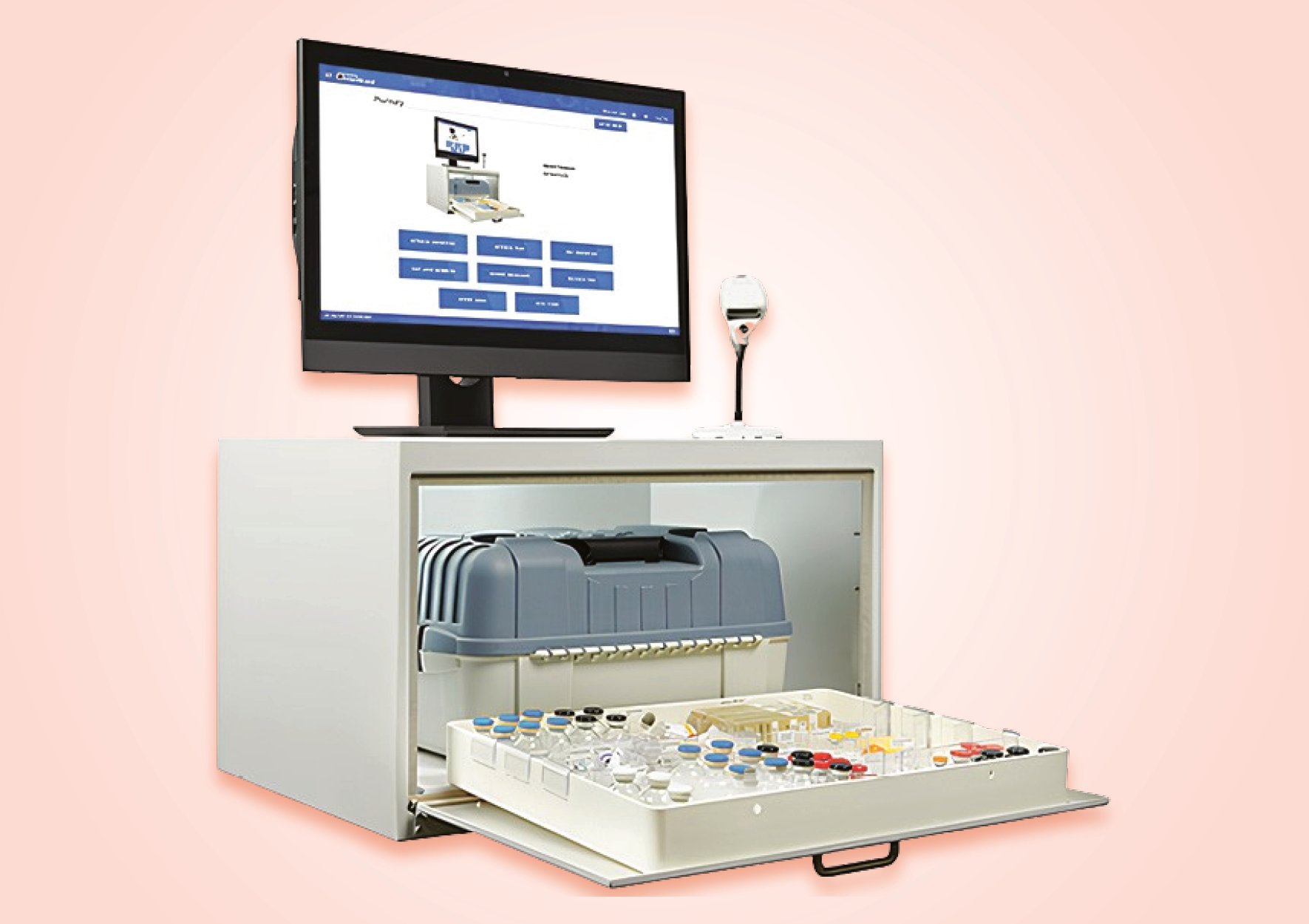- Show Menu
- Contact Us
- FAQs
- Reader Service
- Survey Data
- Survey Winners
- Testimonials
- Upcoming Events
- Webinars
- White Papers
Product Spotlight: Rx Waste Compliance Service from Stericycle
Avera McKennan Hospital & University Health Center, a 540-licensed bed facility located in Sioux Falls, South Dakota, employs 80 full-time pharmacy employees and produces almost 40,000 pounds of pharmaceutical waste each year. The hospital’s formulary totals over 4,000 NDC codes for the drugs it dispenses annually. Even with a committed staff and administration, hospital leaders recognized that a new approach to medication waste management was necessary to meet changing EPA guidelines and Joint Commission standards.
A better solution was needed to properly dispose of non-hazardous drugs, as too often these items were disposed via the drain or garbage. Developing a plan and implementing consistent processes meant identifying a comprehensive solution that included team training. The goal was to do the right thing for our community given that any products wasted via the drain likely end up in the local water supply.
Avera partnered with Stericycle Pharmaceutical Waste Compliance service to help update compliance practices for disposing of non-hazardous and hazardous drug waste; the latter accounts for nearly 6% of the RCRA hazardous medications on a typical formulary. New processes included proper waste segregation, waste container differentiation, and compliant disposal documentation.
Hospital-Wide Focus
In the effort to identify waste practices that required updating, it became evident that pharmacy could not be solely responsible for safely managing pharmaceutical waste. Successful waste management only is possible when shared accountability is coupled with awareness. As such, a multidepartmental team is essential to ensure a thorough and effective program. Departments, such as facility services, safety, employee health, pharmacy, and nursing, all need to be involved in the planning process.
Avera chose to work with a partner dedicated to creating a hospital-wide program with a focus beyond the obvious areas, such as pharmacy, or high-use areas only. Given that managing pharmaceutical waste is labor intensive, it became clear that an effective partner could minimize the operational challenges of identifying all waste, training teams on the regulations and Joint Commission standards and requirements, implementing a color-coded container system, and ensuring the responsible transport and destruction of this waste.
The Complexity of Compliance
Multiple agencies and organizations monitor safe and proper waste disposal. In addition, Avera Health has sites in different states with independent pollution control agencies that offer various levels of guidance. As such, maintaining a consistent approach to waste disposal across all sites was a prime objective for us. We needed a trusted partner to help us think through and implement any changes and restrictions for safe disposal. Ultimately, we wanted the highest level of compliance built into our processes and Stericycle’s compliance review prepared us to manage the multitude of regulations that we are required to follow. 
Workflow Integration & Education
To ensure the success of new disposal practices, it was important to integrate medication waste disposal into existing workflows, allowing the practice to become a natural fit for the nursing staff. During the change to new practices, nursing appreciated the acknowledgement that patient care, not waste disposal, would remain the primary priority for the staff. Key to the implementation process was monitoring usage of the waste containers, and repositioning and rightsizing as needed so that teams had the best chance of success.
Stericycle representatives helped Avera maintain compliance after implementation through their aftercare program. They visited on a scheduled basis during the first year to ensure proper behavior changes, such as appropriately disposing of waste in blue and black (hazardous waste) containers, were adopted. They helped us educate and reeducate our teams. Stericycle also was available to answer our questions as we prepared for inspections.
Regulatory Expertise
Rarely is pharmaceutical waste stream management found to be a significant component of pharmacy training programs, either in pharmacy school or as part of residency curricula. Furthermore, while most safety managers have a safety-related background and are familiar with OSHA requirements, their experience with pharmacy regulations may be quite limited. As such, working with outside experts can assist with educating facility staff on the importance of compliant waste management. Because of the variety of regulatory
issues surrounding proper pharmaceutical disposal, it is necessary to create a partnership between multiple departments, including facilities, safety, regulatory, and pharmacy, when developing a program.
Selecting a Waste Partner
Successfully changing staff behavior over the long-term does not result simply from pharmacy applying the correct label to a product to indicate its waste stream and then hoping nurses and other staff members will know where to properly dispose of it. Rather, a culture change that underscores compliance goals must be created. Look for a partner with a command of the often-changing local, state, and federal regulations, who is willing to share best practices and cost-containment strategies. Choose a partner that will help your facility navigate and manage the daily complexities of pharmaceutical waste management so your team can focus on patient care.

Thomas Johnson, PharmD, MBA, FASHP, FCCM, is the director of hospital pharmacy at Avera McKennan Hospital & University Health Center in Sioux Falls, South Dakota.
Like what you've read? Please log in or create a free account to enjoy more of what www.pppmag.com has to offer.








